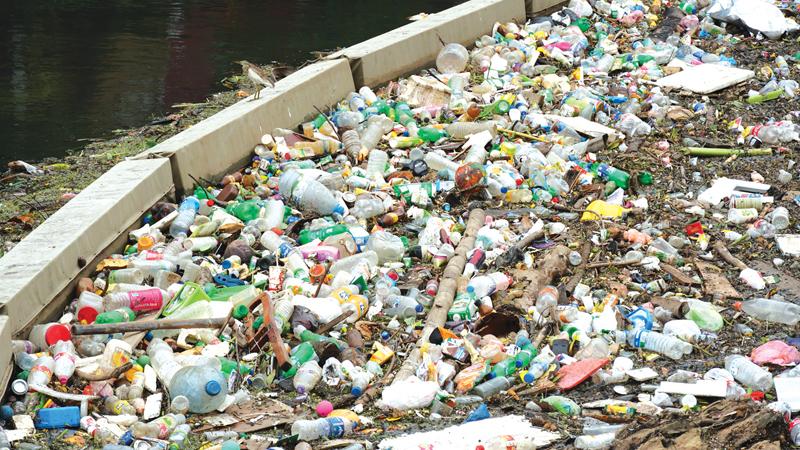
Inspired by the success of its ‘Ocean Strainer’ floating trash trap, a pilot project launched in the Dehiwala Canal last year, MAS Holdings will make the ‘Ocean Strainer’ technology available to interested parties, to replicate and scale up the solution.
The pilot project initiated by MAS included installing the ‘Ocean Strainer’ trash trap in the Dehiwala canal in August 2020. This initial trash trap was designed by MAS engineers, incorporating technical advice from the Marine Environment Protection Authority (MEPA) on customising the design to suit local marine environment conditions. The trash trap acts as a floating barrier, trapping plastic waste before it can reach the ocean.
Chief Executive Officer of MAS Kreeda and MAS Apparel Board Member, Sarinda Unamboowe said, “We were really encouraged by the interest this pilot generated, and the impact that we created with just one ‘Ocean Strainer’ trash trap. In five months, we collected over 30,000 kilograms of waste just from the Dehiwela canal, and had many interested parties reach out to us to find out how they can get involved in this project. That’s when we realised that this is not a journey that we have to undertake alone. Collaboration is the key to creating scalable, impactful change and that is why we are sharing the technology we have developed with others who are interested in replicating this model to address the marine plastic issue at its source.”
Head of Sustainable Business at MAS Holdings, Sid Amalean said, “As a company, we really believe in the power of open innovation and collaboration in problem solving. We want to enable other corporates, NGOs, institutions, clubs, societies, and even individuals, to be a part of the solution to a problem that is very much caused by human behaviour. As a first phase of this journey, we have a group of companies, including Coca-Cola Beverages Sri Lanka, Heineken Lanka, Hemas Holdings, and Unilever Sri Lanka, who have expressed interest in expanding this project, and we are excited to have found like-minded parties who want to extend this project to other locations.”
The pilot project initiated by MAS was carried out with the support of the Marine Environment Protection Authority (MEPA), the Western Provincial Council, the Sri Lanka Land Reclamation and Development Corporation (SLLRDC), the Dehiwala-Mount Lavinia municipality and the Environmental Police.
MAS hopes that the successful expansion of this project will inspire other parties to join the cause in order to achieve further scale and impact in reducing the amount of plastic waste reaching the ocean through rivers and canals across Sri Lanka. Those who are interested in replicating the ‘Ocean Strainer’ trash trap in their own locales could contact MAS Sustainable Business team on [email protected].
